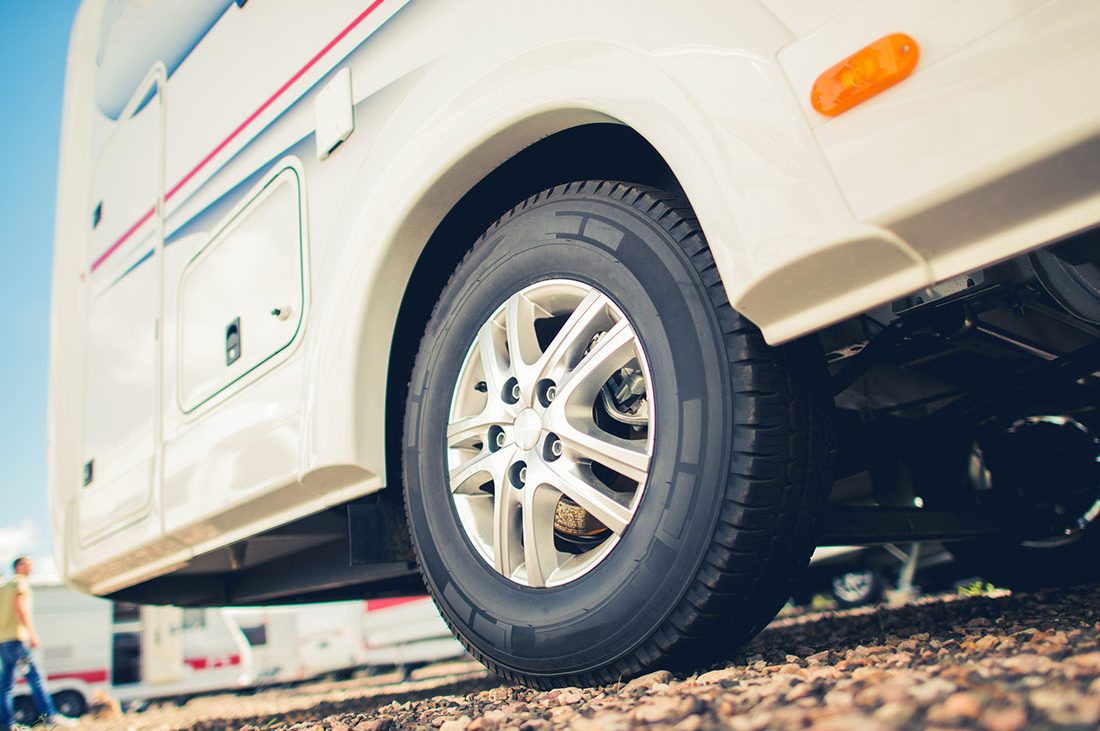|
RV MPG gremlins — where the rubber meets the road. Part II in a series.
One of the prime factors that affect a vehicle’s RV mileage is the rolling-wheel resistance. This is a force or drag that acts against the travel direction. The resistance measure is determined by a number of causes: The first, and most obvious, is the grade affect, the act of climbing a grade. The steeper the ascent, the higher the resistance. But there are more gremlins than just elevation changes. Here are some examples of the other things that increase the tire rolling resistance and rob you of fuel mileage.
- Pressure. Operating below the required tire pressure. Yes, not only does it risk overheating and causing a tire failure, but it ramps up the resistance of the tire’s rotation, impacting RV MPG.
- Road Surface. The courser the surface, the higher the resistance. While a smooth, near-polished concrete surface can give you the least roll drag, a course asphalt top can increase the resistance as much as 8 percent. Sealed stone chip blacktop roads top the list at 33 percent greater tire rolling resistance. Bumpy road surfaces can reduce your fuel mileage as much as 10 percent. This is due to the loss of energy through additional tire heat. In addition, a diesel pusher has an increase compressor cycle required for the air suspension. This turns the usual 5 percent compressor duty cycle to a much higher frequency.
- Vehicle Gross Weight and speed. These factors contribute to excessive tire flex and heat. This heat production requires energy which of course adds to the rolling resistance, affecting RV MPG.
- Wear, tread design and tire construction. These factors also play a part in helping or hindering the tire’s rolling resistance. Worn tires (30,000 plus miles) can deliver up to 7 percent better fuel mileage than that of new. There are advanced tire construction compounds and innovative designs that are helping to reduce the rolling resistance.
All tire related rolling resistance issues are a result of producing heat. Producing heat takes energy. That energy represents a loss of power or inertia. For example, you cannot stop, or even slow your coach down without expelling energy. To do this you must produce heat. The faster and heavier the load, the more heat the service brakes must produce. Heat is energy.
The more your MPG suffers, the more likely you are to experience an unexpected empty tank. As you work to improve your fuel economy, it also helps to have a backup plan should you run out of fuel and run the risk of getting stranded. Roadside assistance plans, like Good Sam Roadside Assistance, are a great bang-for-your-buck option to act as a safety net should you run empty, providing emergency fuel service when needed.
Last week in Part 1 we discussed the fuel mileage “Fact Based Principles.” Next week we will be examining “The Environmental Factors” that affect RV fuel consumption.
Peter Mercer – Keeping Those Big Wheels Rolling
